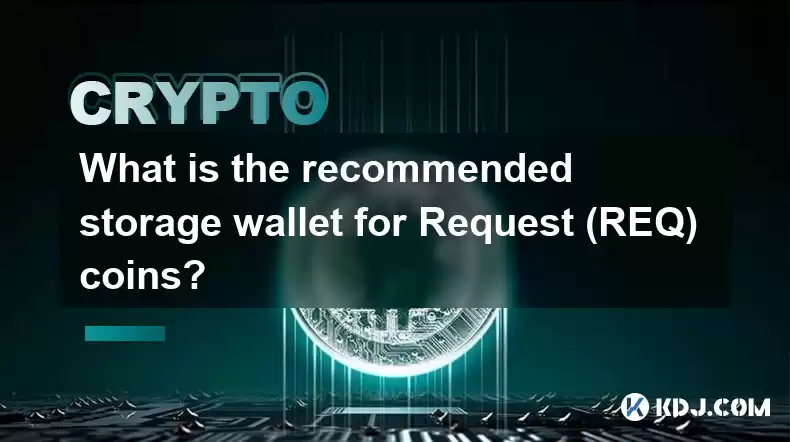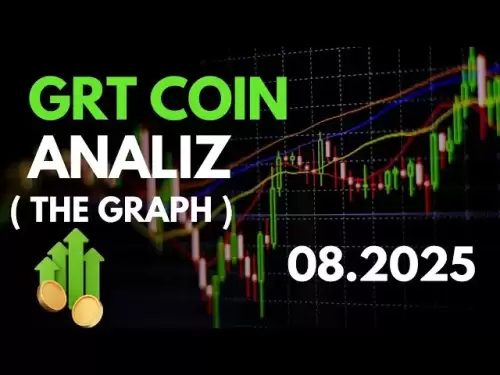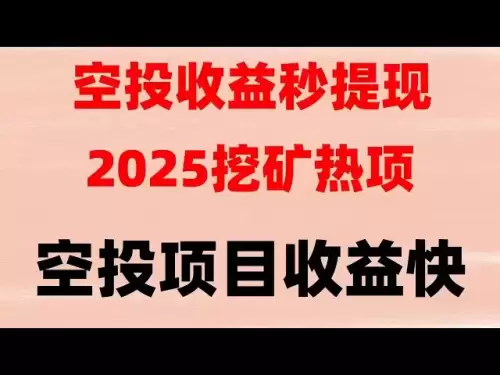-
 Bitcoin
Bitcoin $119300
2.40% -
 Ethereum
Ethereum $4254
-0.20% -
 XRP
XRP $3.184
-1.38% -
 Tether USDt
Tether USDt $1.000
0.00% -
 BNB
BNB $803.9
0.58% -
 Solana
Solana $183.1
1.50% -
 USDC
USDC $0.0000
0.01% -
 Dogecoin
Dogecoin $0.2339
-2.87% -
 TRON
TRON $0.3384
0.88% -
 Cardano
Cardano $0.8018
-0.29% -
 Hyperliquid
Hyperliquid $45.13
3.14% -
 Chainlink
Chainlink $22.10
0.96% -
 Stellar
Stellar $0.4439
-0.94% -
 Sui
Sui $3.875
-0.73% -
 Bitcoin Cash
Bitcoin Cash $570.7
0.24% -
 Hedera
Hedera $0.2589
-2.90% -
 Ethena USDe
Ethena USDe $1.001
-0.01% -
 Avalanche
Avalanche $23.83
-1.73% -
 Litecoin
Litecoin $123.8
2.61% -
 Toncoin
Toncoin $3.351
-1.13% -
 UNUS SED LEO
UNUS SED LEO $9.103
1.13% -
 Shiba Inu
Shiba Inu $0.00001356
-1.40% -
 Uniswap
Uniswap $10.93
-0.19% -
 Polkadot
Polkadot $4.057
-1.97% -
 Dai
Dai $1.000
0.01% -
 Cronos
Cronos $0.1646
4.66% -
 Ethena
Ethena $0.7974
8.11% -
 Pepe
Pepe $0.00001208
-2.89% -
 Bitget Token
Bitget Token $4.445
-1.70% -
 Monero
Monero $268.8
-2.00%
What is the recommended storage wallet for Request (REQ) coins?
Understanding the various REQ coin storage options, including hardware wallets like Ledger Nano X and Trezor Model T for enhanced security, and software wallets like MetaMask and Trust Wallet for convenience, is crucial for safeguarding your crypto assets.
Dec 25, 2024 at 07:02 am

Key Points
- Understand the storage options available for Request (REQ) coins.
- Evaluate the security features and user-friendliness of each wallet type.
- Choose the wallet that best meets your individual storage needs.
- Consider both hardware and software wallets, as well as custodial and non-custodial options.
- Regularly review your wallet security and update your software to ensure optimal protection.
Understanding Request (REQ) Coin Storage Options
Request (REQ) is a decentralized payment network that enables seamless payments and invoicing. REQ coins, the native cryptocurrency of the network, serve as a medium of exchange and facilitate transactions on the platform. As with any cryptocurrency, securing your REQ coins is crucial to prevent loss or theft. To this end, understanding the available storage options is paramount.
Types of Storage Wallets for REQ Coins
There are two primary types of storage wallets for REQ coins:
- Hardware Wallets: Physical devices that store your private keys offline, offering the highest level of security.
- Software Wallets: Applications that run on your computer or mobile device, providing convenience but potentially lower security.
Hardware Wallets for REQ Coins
Hardware wallets are considered the most secure option for storing REQ coins. They generate and store your private keys offline, making them immune to online threats.
- Ledger Nano X: A popular hardware wallet offering support for a wide range of cryptocurrencies, including REQ. Known for its user-friendly interface, robust security features, and Bluetooth connectivity.
- Trezor Model T: Another well-established hardware wallet with a large user base. Provides advanced security features such as a Shamir Backup system, touch screen display, and optional password manager.
- SafePal S1: A newer hardware wallet with a focus on simplicity and ease of use. Features a built-in exchange and support for multiple blockchains, including Ethereum-based REQ coins.
Software Wallets for REQ Coins
Software wallets offer convenience and accessibility, but their security can vary depending on the provider.
- MetaMask: A browser extension wallet compatible with Ethereum and ERC-20 tokens like REQ. Provides a user-friendly interface, access to decentralized apps, and support for multiple devices. However, it is a custodial wallet, meaning MetaMask holds your private keys, raising potential security concerns.
- MyEtherWallet: A web-based software wallet that allows you to create and manage multiple Ethereum accounts. Supports REQ tokens and offers advanced features like multi-signature and hardware wallet integration. However, it is also a non-custodial wallet, requiring you to safeguard your private keys.
- Trust Wallet: A mobile software wallet developed by Binance. Provides support for a wide range of cryptocurrencies, including REQ. Features a built-in exchange, staking capabilities, and integration with decentralized apps. Similar to MetaMask, Trust Wallet is a custodial wallet.
Choosing the Right Wallet for Your REQ Coins
Your choice of wallet should depend on your individual needs and preferences. Consider factors such as:
- Security level: Hardware wallets offer the highest level of security, while software wallets vary in their security measures.
- Convenience: Software wallets are more convenient to use, while hardware wallets require more setup and maintenance.
- Custodial vs. non-custodial: Custodial wallets hold your private keys, while non-custodial wallets give you full control.
- Additional features: Some wallets offer additional features such as staking support or hardware wallet integration.
FAQs about REQ Coin Storage
Q: Is it safe to store REQ coins on an exchange?
A: While storing REQ coins on a reputable exchange can be convenient, it is not as secure as using a hardware or non-custodial software wallet. Exchanges can be hacked or go bankrupt, potentially resulting in the loss of your funds.
Q: How often should I update my wallet software?
A: Regularly update your wallet software to ensure optimal security and compatibility with the latest security patches and features.
Q: What happens if I lose my hardware wallet or forget my recovery phrase?
A: Losing your hardware wallet or recovery phrase can result in the permanent loss of your REQ coins. Always keep your recovery phrase secure and consider storing it in multiple physical locations.
Disclaimer:info@kdj.com
The information provided is not trading advice. kdj.com does not assume any responsibility for any investments made based on the information provided in this article. Cryptocurrencies are highly volatile and it is highly recommended that you invest with caution after thorough research!
If you believe that the content used on this website infringes your copyright, please contact us immediately (info@kdj.com) and we will delete it promptly.
- Shiba Inu's Comeback Trail and the Meme Coin Mania: Can $SHIB Deliver a 12,000x Return?
- 2025-08-11 18:30:11
- Pudgy Penguins, Bitcoin Penguins, and the $22M Meme Coin Mania: A New York Perspective
- 2025-08-11 17:10:11
- Bitcoin L2 Heats Up: SatLayer (SLAY) Lists on KuCoin Amidst Layer-2 Boom
- 2025-08-11 16:50:12
- Ethereum, Coin Market Cap, and Solfart Token: A Wild Ride in the Crypto Universe
- 2025-08-11 17:50:12
- Riding the ETH Wave: GoldenMining's ETH Contracts and the Price Surge
- 2025-08-11 17:55:12
- DOGE, SHIB, and the Crypto Landscape: What's Hot and What's Not
- 2025-08-11 18:01:04
Related knowledge

How to purchase Aragon (ANT)?
Aug 09,2025 at 11:56pm
Understanding Aragon (ANT) and Its PurposeAragon (ANT) is a decentralized governance token that powers the Aragon Network, a platform built on the Eth...

Where to trade Band Protocol (BAND)?
Aug 10,2025 at 11:36pm
Understanding the Role of Private Keys in Cryptocurrency WalletsIn the world of cryptocurrency, a private key is one of the most critical components o...

What is the most secure way to buy Ocean Protocol (OCEAN)?
Aug 10,2025 at 01:01pm
Understanding Ocean Protocol (OCEAN) and Its EcosystemOcean Protocol (OCEAN) is a decentralized data exchange platform built on blockchain technology,...

Where can I buy UMA (UMA)?
Aug 07,2025 at 06:42pm
Understanding UMA and Its Role in Decentralized FinanceUMA (Universal Market Access) is an Ethereum-based decentralized finance (DeFi) protocol design...

How to buy Storj (STORJ) tokens?
Aug 09,2025 at 07:28am
Understanding Storj (STORJ) and Its Role in Decentralized StorageStorj is a decentralized cloud storage platform that leverages blockchain technology ...

Where to find the best price for Audius (AUDIO)?
Aug 11,2025 at 04:01pm
Understanding the Basics of Ethereum StakingEthereum staking refers to the process of locking up ETH tokens to support the security and operations of ...

How to purchase Aragon (ANT)?
Aug 09,2025 at 11:56pm
Understanding Aragon (ANT) and Its PurposeAragon (ANT) is a decentralized governance token that powers the Aragon Network, a platform built on the Eth...

Where to trade Band Protocol (BAND)?
Aug 10,2025 at 11:36pm
Understanding the Role of Private Keys in Cryptocurrency WalletsIn the world of cryptocurrency, a private key is one of the most critical components o...

What is the most secure way to buy Ocean Protocol (OCEAN)?
Aug 10,2025 at 01:01pm
Understanding Ocean Protocol (OCEAN) and Its EcosystemOcean Protocol (OCEAN) is a decentralized data exchange platform built on blockchain technology,...

Where can I buy UMA (UMA)?
Aug 07,2025 at 06:42pm
Understanding UMA and Its Role in Decentralized FinanceUMA (Universal Market Access) is an Ethereum-based decentralized finance (DeFi) protocol design...

How to buy Storj (STORJ) tokens?
Aug 09,2025 at 07:28am
Understanding Storj (STORJ) and Its Role in Decentralized StorageStorj is a decentralized cloud storage platform that leverages blockchain technology ...

Where to find the best price for Audius (AUDIO)?
Aug 11,2025 at 04:01pm
Understanding the Basics of Ethereum StakingEthereum staking refers to the process of locking up ETH tokens to support the security and operations of ...
See all articles

























































































